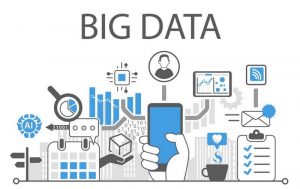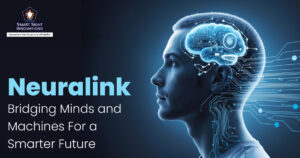 Big Data integration has quickly become an indispensable part of the new generation of smart, self-teaching appliances resulting in a metamorphosis across multiple facets of society and also people’s daily lives. Devices generate as well as consume staggering amounts of data, and leveraging this data, learning, and recognizing patterns and implementing changes / processes based on deep analysis of such data has empowered businesses like never before.
Big Data integration has quickly become an indispensable part of the new generation of smart, self-teaching appliances resulting in a metamorphosis across multiple facets of society and also people’s daily lives. Devices generate as well as consume staggering amounts of data, and leveraging this data, learning, and recognizing patterns and implementing changes / processes based on deep analysis of such data has empowered businesses like never before.
The recent years have slowly but surely led to a perfect storm scenario, with the vast volumes of data being spawned due to the increasing reach of the internet, its easy availability, and the rapid advancements in technology.
A recent IBM study reported that 90% of the data in the world has been created in the last 2 years! These figures support the rapid increase in demand for big data development services, which is here to stay, especially looking at the mercurial adoption of mobile technologies and IoT.
The seamless digitization engendered by the finance and banking industry over the recent years has brought in unseen transformations that have helped them permeate previously uncharted avenues to drive growth and subsequently revenue. For this very critical field, it is imperative that the large-scale benefits afforded by big data development are adequately leveraged.
A research survey showed that 71% of financial service firms have adopted analytics powered by big data development in some form or the other.
While some organisations are open to appropriate the latest technologies to ensure a seamless customer experience, many of them are unsure of the many benefits that these technologies bring to the table.
The Role of Big Data
The value that big data brings with it is unmatched, and here, we will see how this brings forth positive results in the banking and finance sector.
Smart Insights
Big data solutions have changed how stock markets around the world operate, as well as the way to deal with making investment decisions. Machine learning gives exact figures at lightning speed, empowering analysts to settle on the best choices. Basically, combined with algorithmic trading, Big Data integration looks incredibly promising for the trading sector.
Detecting and preventing fraud
Predictive analysis is an important feature of big data platforms and is a fast-emerging field that many enterprises have already embraced. A typical system analyses large amounts of data in real-time and detects fraudulent transactions and alerts the concerned authorities to take necessary corrective actions.
Another common security threat was that posed by credit cards, which have been mitigated to a large extent by implementing data analytics that interpret buying patterns. When personal credit card information of oblivious customers is stolen, banks can instantly freeze the card and transactions, and notify the customer of possible threats.
Instant stock market insights
Machine learning is revolutionizing the entire trade and investments sector. Instead of simply analysing stock prices, big data solutions can now interpret political and social trends that may affect the stock market performance. Machine learning models monitor trends in real-time and provide analysts important insights that help them evaluate and arrive at smart decisions.
Understand customer spending patterns
Big data platforms enable deep analysis which help in learning spending patterns of various types of customers (high net worth or otherwise) with the help of their payment data. This helps financial institutions better identify opportunities for potential customers who may require specific financial services. This analysis can be done on the basis of demographics, location, mean income etc.
Superior customer service
Having large volumes of customer data makes it easier for banks and financial service providers to work out customer needs and offer products and services at the right time.
In today’s scenario, banks, including major institutions, use data acquired from customers at every interaction to predict products and services that are likely to be truly meaningful to them, while at the other end of the spectrum, they can cut down on unnecessary expenditure, on what previously were deemed to be lucrative segments and offerings.
Information on the go
Modern banking apps provide easy access to data-driven technology at customer’s fingertips. For e.g., certain apps can make accurate predictions as to whether customers are likely to exceed their credit limits and alert them on accidental overcharges on their account.
If you are looking for big data development services to improve business performance, contact the experts at Smart Sight Innovations.












